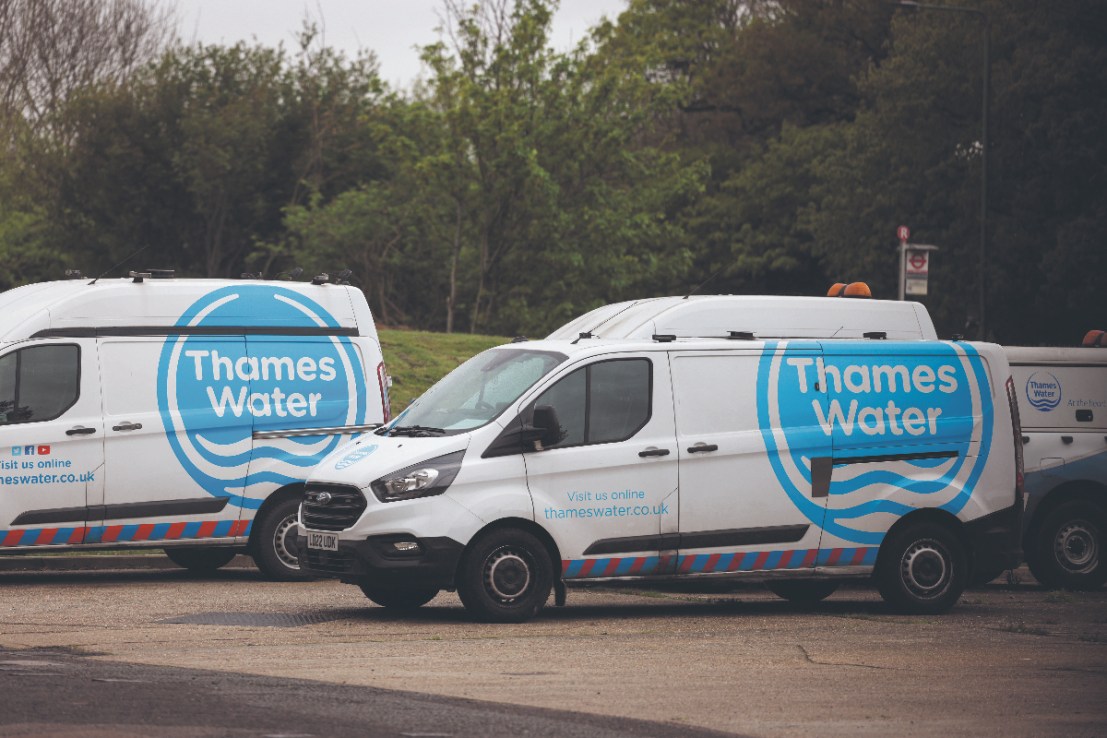Thames Water: London bills to rise by £99 in fresh Ofwat proposals as company placed in ‘turnaround’ regime
Ofwat, the UK's water regulator, has set out a record £88bn spending package that would see Londoders' bills go up by an average of £99 in the next five years excluding inflation.


Ofwat, the UK’s water regulator, has set out a record £88bn spending package that would see Londoners’ bills go up by an average of £99 in the next five years, excluding inflation.
The long-awaited investment plan, which followed a lengthy period of negotiations between struggling water firms and the regulator, proposed a total investment of £88bn in Britain’s creaking sewage infrastructure to reduce pollution and improve customer service. This would represent a threefold hike on the amount earmarked for the 2020-2025 period.
Of the total, Ofwat said £35bn would be earmarked for projects to help reduce pollution, improve customer service and water quality.
A further £17bn is set to be invested in new water assets, such as six reservoirs, some of which are part of the wider programme of major projects. In totalm nine new reservoirs are proposed.
However, while substantial, the investment plan approved was £16bn below the figure initially requested by companies.
Ofwat outlined that the average bill increase for water firms across the UK would be £19 a year over five years based on the plan – a total of £94 – before taking into account the effects of inflation. Thames Water customers specifically would pay an extra £99 by 2030.
The figure is significantly lower than the amount many water companies like Thames requested in their business plans, which were submitted to Ofwat in the Spring.
Thames initially wanted to increase its bills by 44 per cent to £191 by 2030. Southern Water wanted to push through a 91 per cent hike to £144.
Water firms like Thames, which earlier this week warned it had 11 months’ worth of capital left,, argued in the run-up to the decision that a significant hike in customer bills was needed to make the necessary infrastructure upgrades required to stem pollution and leaks.
Ofwat said the plans will help reduce the number of spill from storm overflows by 44 per cent relative to 2021 levels, by upgrading 2,500 overflows.
The regulator also said it would mark £6bn to make improvements at over 1500 wastewater treatment works and set eight new performance targets.
David Black, chief executive of Ofwat said: “Customers want to see radical change in the way water companies care for the environment.
“Our draft decisions on company plans approve a tripling of investment to make sustained improvement to customer service and the environment at a fair price for customers.
“These proposals aim to deliver a 44 per cent reduction in spills from storm overflows compared to levels in 2021. We expect all companies to embrace innovation and go further and faster to reduce spills wherever possible.
“Today’s announcement also increases the resilience of our water supplies to the impact of climate change and will reduce how much water is taken from rivers by enabling a range of long-term water supply projects, which includes plans for nine reservoirs. “
Ofwat also said it had placed Thames Water into a special “turnaround oversight regime,” an unprecedented move by the regulator.
It said given “our concerns over the performance of the company,” Thames Water would be required to provide a “delivery action plan” and show how it will deliver the “necessary step change in performance”.
“Ambitious, deliverable, financeable and investible”?
Only two days ago, alongside its full year numbers, Thames said it had just £1.8bn of liquidity left, “sufficient to fund our operations for the next 11 months to the end of May 2025.”
However, the company also warned there were “material uncertainties” around its future funding requirements, which included not securing commitments for future funding, a downgrade to its credit rating or a failure to meet its legal obligations.
The company ended the year with £15.2bn of debt and paid £200m of dividends during the period.
Thames Water responded to Ofwat’s proposal, saying that despite the regulator declaring its plans “inadequate”, it hoped to resolve the issues because “the judgement rests on over 20 very specific tests” which Thames hoped to meet in its full response.
It added: “We believe our plan is ambitious, deliverable, financeable and investible. It is also underpinned by a package to support over 500,000 customers with reduced bills.
“Ofwat’s draft determination understandably challenges us on efficiency and delivery. They have been thoughtful in considering the funding we need for our day to day running costs and the improvements our customers and communities want to see.”
But Thames Water’s response stopped short of outlining how it planned to reconcile its dire capital position with the shorftfall between the bill rises it requested in its plan and those being granted by Ofwat.



